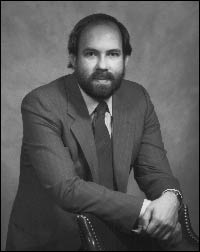FDCPA claim rejected on appeal
By: David Ziemer, [email protected]//February 22, 2011//

In a Feb. 11 opinion involving the Fair Debt Collection Practices Act, the 7th Circuit put the kibosh on an audacious trap for the unwary debt collector.
The debtor’s attorney had written the debt collector, requesting that it communicate only with him, rather than his client; but when the debt collector did so, the attorney then sued, arguing that, by communicating through him, the debt collector indirectly, and thus illegally, communicated with the debtor.
Affirming summary judgment for the debt collector, Judge Frank H. Easterbrook concluded, “[The debt collector did just what [the debtor’s] lawyer requested: it ‘direct[ed] all further communications to our office.’ Doing this did not violate the Act.”
After receiving a dunning letter from Integrity Financial Partners, Christopher Tinsley retained an attorney, who informed Integrity that Tinsley refused to pay and that Integrity should “cease all further collection activities and direct all future communications to our office.”
Integrity did as requested, and called the lawyer with a request for payment.
Tinsley then filed suit under 15 U.S.C. 1692c(c), which provides, with exceptions not relevant to this case, that, “If a consumer notifies a debt collector in writing that the consumer refuses to pay a debt or that the consumer wishes the debt collector to cease further communication with the consumer, the debt collector shall not communicate further with the consumer with respect to such debt.”
Tinsley’s theory was that contact with his attorney violated the Act, because 15 U.S.C. 1692a(2) defines “communication” as “the conveying of information regarding a debt directly or indirectly to any person through any medium.”
As far-fetched as the theory sounds, Tinsley had persuasive authority to support it; a district court in Illinois recently accepted it.
In Startare v. Credit Bureau of North America, LLC, No. 09-C-6464 (N.D. Ill. June 3, 2010)(unpublished), the court held, “The FDCPA was enacted to ‘eliminate abusive debt collection practices by debt collectors …’ In addition, the FDCPA includes multiple subsections that prohibit communication directly with a consumer if the debt collector knows that the consumer is represented by an attorney. Thus, the statute itself seems to contemplate that where the consumer has an attorney, that attorney necessarily stands in as a proxy for the consumer. Based upon the above, we find that 15 U.S.C. 1692c(c) applies to communication with a consumer’s attorney.”
But the 7th Circuit disagreed, stating that such reasoning was “implausible,” and that it “makes hash” of the statutes and reduces them to “gibberish.”
“Why would Congress have provided that hiring a lawyer makes it impossible for the debtor and debt collector to communicate through counsel?” the court asked.
“Tinsley’s understanding of secs. 1692a(2) and 1692c would throw a monkey wrench into ordinary pre-litigation discussions between lawyers.”
David Ziemer can be reached at [email protected]
What the court held
Case: Tinsley v. Integrity Financial Partners, Inc., No. 10-2045
Issues: Does it violate the FDCPA for a debt collector to demand payment from a debtor’s attorney?
Holdings: No. Communication with counsel is not an indirect communication with the debtor.
Legal News
- Waukesha man sentenced to 30 years for Sex Trafficking
- 12-year-old shot in Milwaukee Wednesday with ‘serious injuries’
- Milwaukee man convicted of laundering proceeds of business email compromise fraud schemes
- Giuliani, Meadows among 18 indicted in Arizona fake electors case
- Some State Bar diversity participants walk away from program
- Wisconsin court issues arrest warrant ‘in error’ for Minocqua Brewing owner
- Iranian nationals charged cyber campaign targeting U.S. Companies
- Facing mostly white juries, are Milwaukee County defendants of color truly judged by their peers?
- Milwaukee Mayor speaks in D.C. Tuesday at White House water summit
- Chicago man sentenced to prison after being caught with ‘Trump Gun’
- FTC bans non-competes
- Gov. Evers seeks applicants for Dane County Circuit Court
WLJ People
- Power 30 Personal Injury Attorneys – Russell Nicolet
- Power 30 Personal Injury Attorneys – Benjamin Nicolet
- Power 30 Personal Injury Attorneys – Dustin T. Woehl
- Power 30 Personal Injury Attorneys – Katherine Metzger
- Power 30 Personal Injury Attorneys – Joseph Ryan
- Power 30 Personal Injury Attorneys – James M. Ryan
- Power 30 Personal Injury Attorneys – Dana Wachs
- Power 30 Personal Injury Attorneys – Mark L. Thomsen
- Power 30 Personal Injury Attorneys – Matthew Lein
- Power 30 Personal Injury Attorneys – Jeffrey A. Pitman
- Power 30 Personal Injury Attorneys – William Pemberton
- Power 30 Personal Injury Attorneys – Howard S. Sicula











